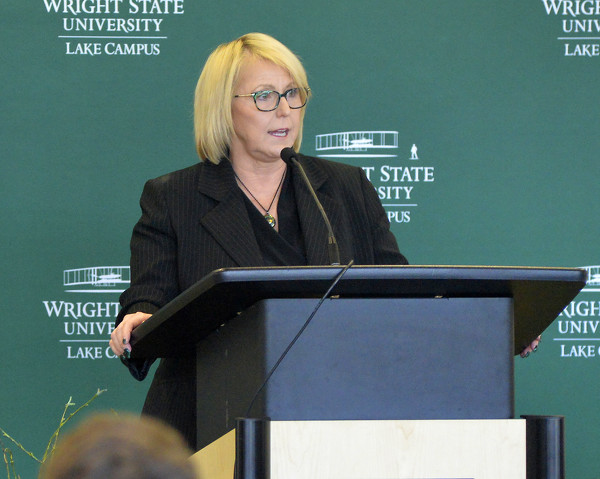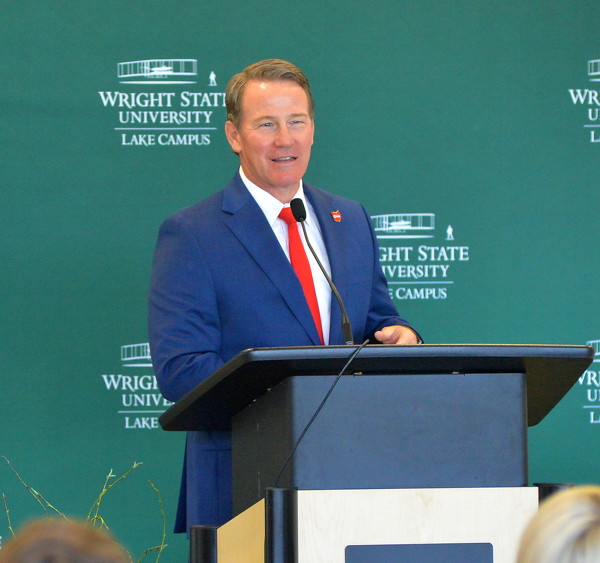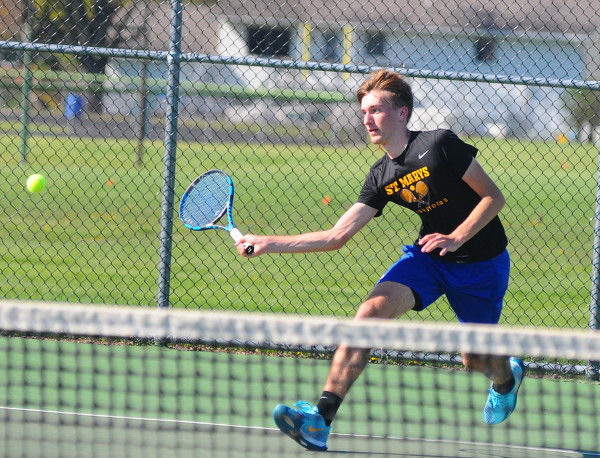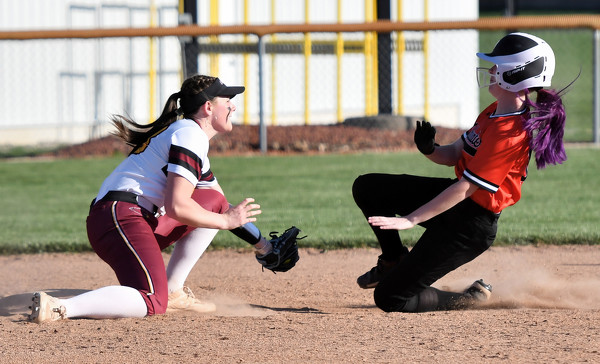Friday, April 14th, 2023
WSU President: 'Working class institution'
By William Kincaid

Photo by Paige Sutter/The Daily Standard
Wright State University President Susan Edwards.
CELINA - Australian native Susan Edwards' background as the first in her family to finish high school and a working class college student informs her approach to presiding over Wright State University.
"I got my associate's degree first and I worked as a laboratory technician for a number of years," she said at WSU-Lake Campus' regional workforce summit on Thursday morning.
Edwards noticed she was doing the same job as scientists but earning half their salary.
So she went back to school.
"I worked my 30 hours a week while putting myself through school. It took me nine years from the start of my associate's to get my bachelor's degree, and then, just by chance, I had an opportunity to go into work in a lab in research. Just by chance. And they said, 'You should go on, you should do a master's."
Edwards said mentors are important to first generation students who "don't have those people that have come before them to help guide them."
"My mother said, 'You better take shorthand and typing … in high school because this science thing probably isn't going to work out,"" Edwards recalled.
Though arduous work and study and with the guidance of mentors, Edwards went on to earn a doctorate in comparative psychology, publish research papers and book chapters and in January 2020, assume presidency of Wright State University.
"The students that are coming to Wright State are essentially who I was at that age and I say that because that's what I'm relating to," Edwards said. "I'm relating to those students that may have that voice of doubt that they can't do something."
Moreover, Edwards said she recognizes the tone and tenor of higher education have changed with the times.
"The modern university has to develop program offerings that are designed to meet the workforce needs and are articulated through your community feedback," Edwards told a gathering of government, education and business officials. "We're approaching higher education in a new unique manner that facilitates greater learning outcomes."
WSU, Edwards said, is a state institution whose role is to support the community.
"Higher education has a history of telling people what we think you should know," she said. "My philosophy is to turn that on its head and work with you all so that what we're doing makes an impact in your fields, and I can't do that unless we are out there engaging with the community each and every day."
WSU officials want to know what they are and are not giving the community with the graduates and are always looking for businesses willing to offer internships. In addition to smarts and skills, WSU graduates need meaningful work experience before they graduate.
Edwards said most of her students in engineering and computer science have full-time jobs before they finish their junior year.
"I can not produce enough of them," she said.
Much is the same with her nursing students.
"And the reason that Wright State graduates are so valued is because they have work ethic," she said. "We are a working class institution. Let me say that again. We are a working class institution and we should be dang proud of that."
Edwards also stressed that education is not just for the young.
"You have some of those journeymen that are out there that are ready to come off their tools, as we like to say, because they're 50 and it's a lot harder to lift a really big piece of a glass above your head … or metal and so they're looking for new qualifications, new skill sets and we're about to provide that transition through micro-credentials, through TechCred."
WSU-Lake Campus Business Enterprise Center offers technology-focused credentials that take a year or less to complete and prepare current and future employees for technology jobs.
WSU-Lake Campus Vice Provost Chief Administrative Officer Andrea Faber on Thursday said she was excited to see the return of the regional workforce summit that had been on hiatus.
The event was launched in 2011 under former dean Bonnie Mathies, who died in 2019. The regional summits spawned work groups whose goals were to assess community needs, Faber said.
Some of the tangibles that emerged were the creation of bachelor degrees in mechanical engineering, nursing and business.
"All of those programs are now offered where students can get all four years right here at the Lake Campus," Faber said.
Faber said roughly 85% of Lake Campus nursing graduates are employed in West Central Ohio.
"It was truly important as we needed nurses in this area, that we are graduating those students and helping the workforce and have those students employed here," she said.
Faber, too, emphasized that Lake Campus students tend to work while going to school. School officials try to connect them with jobs in areas they are studying.



